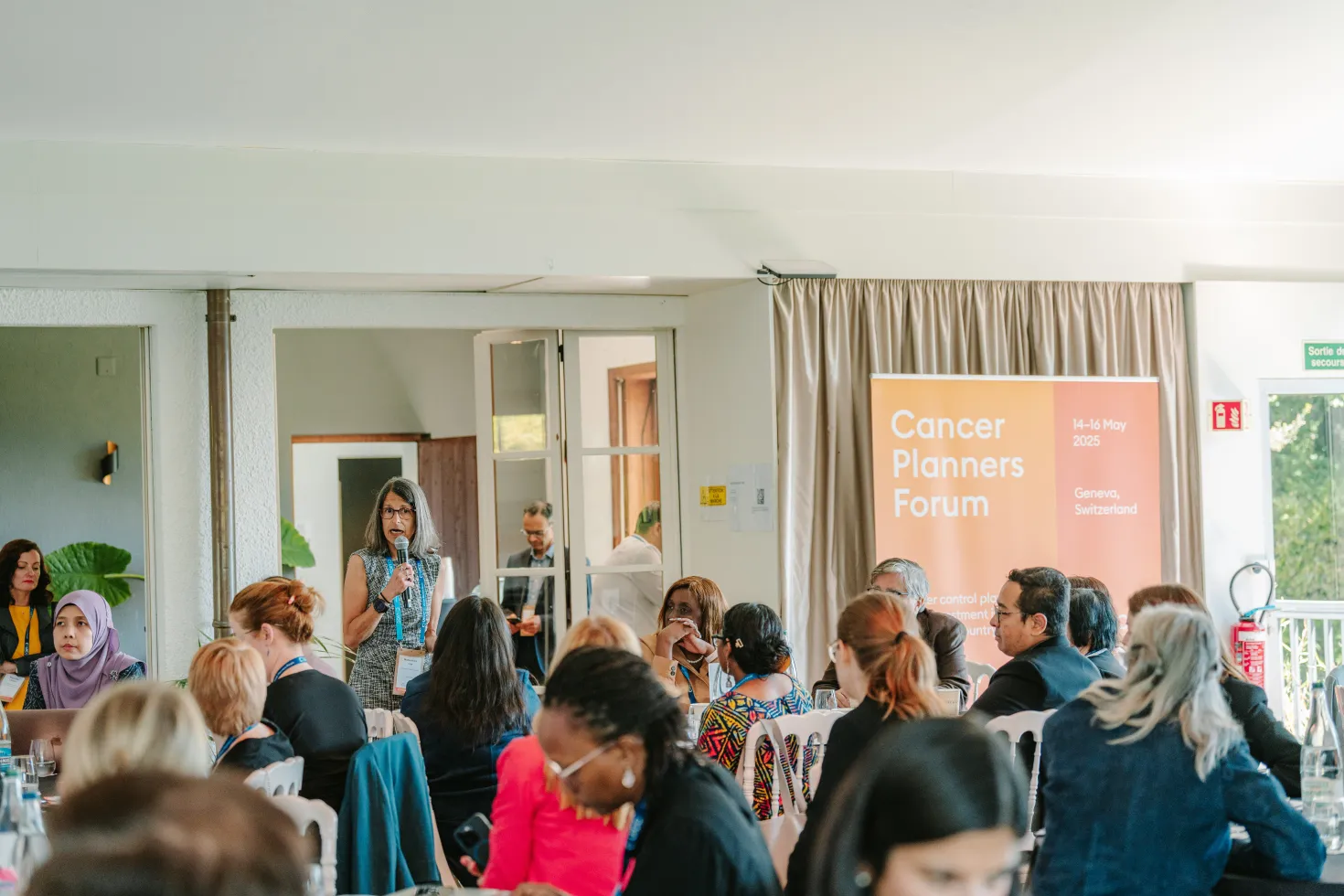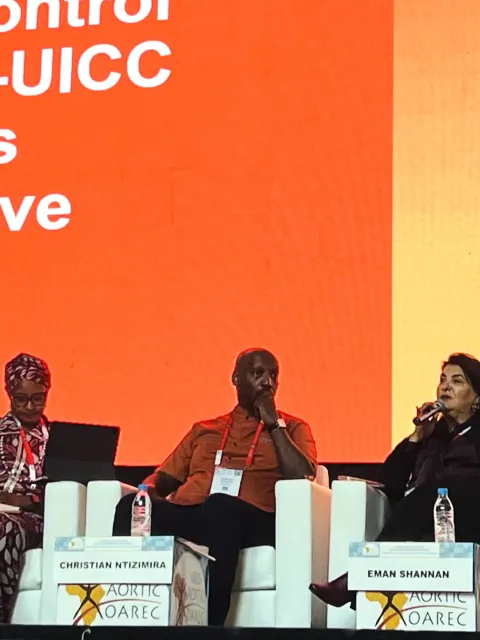Experts met in Geneva to strengthen cancer planning efforts at the Cancer Planners Forum
Countries explored smarter, costed strategies for national cancer control planning at Geneva forum, sharing real-world experiences.

HIGHLIGHTS
- Over 100 cancer planners and public health officials from about 45 countries attended UICC’s inaugural Cancer Planners Forum.
- Sessions focused on development, implementation and monitoring and evaluation of cancer control plans, including costing and prioritising cancer control strategies using national data, and aligning with universal health coverage.
- Country case studies highlighted creative, collaborative approaches to overcoming funding and coordination challenges.
Public health officials responsible for designing and implementing national cancer strategies and other health officials from around the world met in Geneva on 14-16 May for UICC’s inaugural Cancer Planners Forum. The event brought together more than 100 participants, including cancer planners from 45 countries – most of them from ministries of health – as well as representatives from the World Health Organization (WHO), the International Atomic Energy Agency (IAEA), the International Agency for Research on Cancer (IARC), the International Cancer Control Partnership (ICCP), and other partner organisations.
Held just ahead of the World Health Assembly, the Forum focused on practical ways to improve cancer control plans used to guide cancer prevention, diagnosis, treatment, and care at the national, regional, state, and city levels.
A comprehensive resource hub for cancer control planning
UICC is pleased to announce the launch of the newly updated website for the International Cancer Control Partnership (ICCP) portal. This comprehensive online platform is designed to support cancer planners and policymakers worldwide by providing a one-stop shop for resources and tools.
The programme of the event comprehensively addressed the entire cancer planning process: setting objectives and identifying priorities, costing and financing, implementation, monitoring and evaluation, and engaging stakeholders. The event further highlighted the essential collaboration between international bodies and cancer organisations, and encouraged cross-border interactions as well as peer-to-peer support.
WHO conducted a hands-on session to show countries how to use its an online tool for modelling cancer interventions and assessing their impact, explaining who to apply it in national contexts and enhance the efficiency and impact of their cancer control efforts.
“Costing and priority setting is a non-linear, iterative process and incomplete science – success is based on an effective and impactful dialogue, not just a number. WHO’s costing tool helps guide prioritisation, but it’s only as good as its application by Ministries of Health and partners on the ground. Costing is no panacea – but it is both the beginning and the end of effective national cancer control plans.”
– André Ilbawi, Technical Lead for Cancer Control at the World Health Organization (WHO)
Other key sessions addressed how cancer plans can be better aligned with universal health coverage goals and broader national health strategies. Speakers emphasised the importance of including a wide range of voices in planning and implementation – from clinicians and researchers to people living with cancer and community organisations.
Throughout the Forum, planners from countries including Australia, Cambodia, Eswatini, Morocco, Nigeria, Spain, and Sri Lanka presented examples of how they’ve approached cancer control planning. These stories helped spark conversations around practical solutions – from improving coordination across government agencies to better use of data and law, and prioritising limited resources.
“In Eswatini, cancer planners overcame funding constraints by collaborating with international and implementing partners and civil society organisations to integrate cancer services into existing health programs such as HIV, TB, EPI, and School health – demonstrating the power of collaboration and creativity to build sustainable, integrated models of care. It’s a clear reminder that where there’s a will, there’s a way.”
– Xolisile Dlamini, Cancer Programme Manager, Ministry of Health, Eswatini
Interactive polling and group discussions revealed common themes, including the need for stronger stakeholder engagement, more reliable data, and sustained political and financial support.
Many attendees noted the value of connecting with peers facing similar challenges and sharing lessons across regions and income settings.
In his closing speech, Cary Adams, CEO of UICC, encouraged participants to continue the groundwork laid down at the event. "Go back to your countries and co-planners and share what moved and inspired you here. We hope to meet again – to witness the progress and hear the impact on the ground. So much of the incredible work we’ve seen is built through this community, and I hope you leave knowing you are not alone. You have friends, you have a voice – and together, we have the power to shift both national priorities and the global agenda as we look ahead to the UN High-Level Meeting on NCDs and beyond."
Last update
Wednesday 28 May 2025
